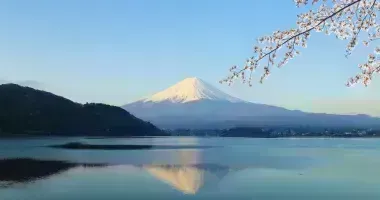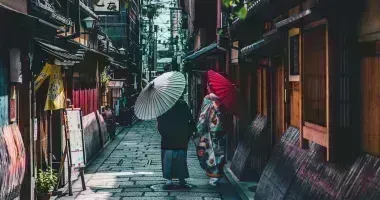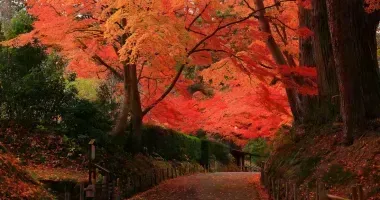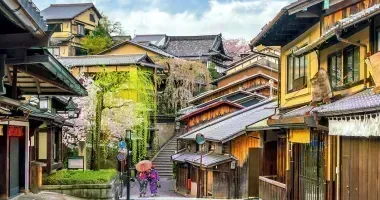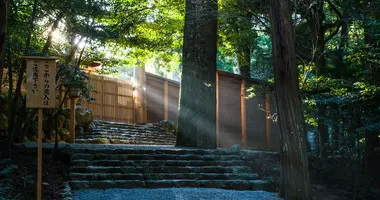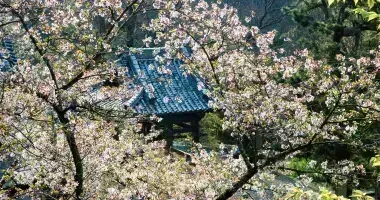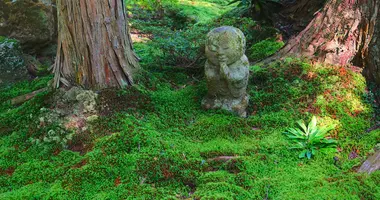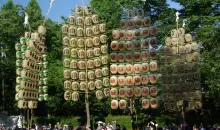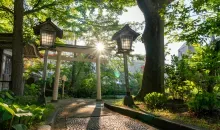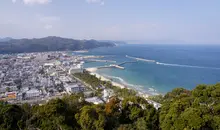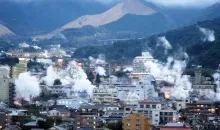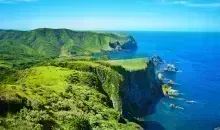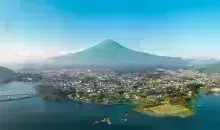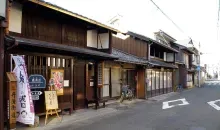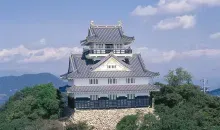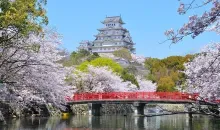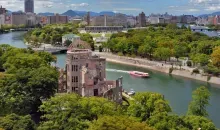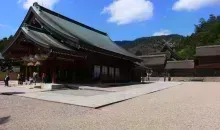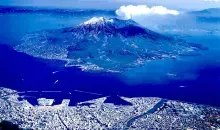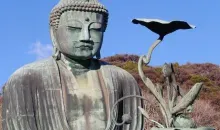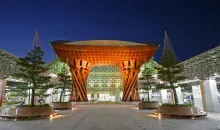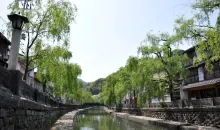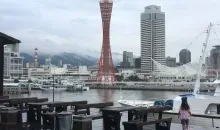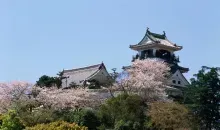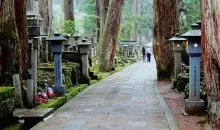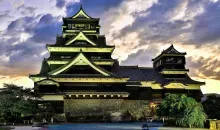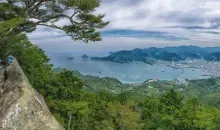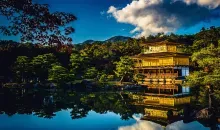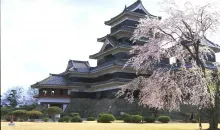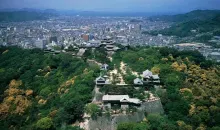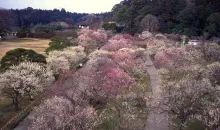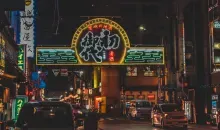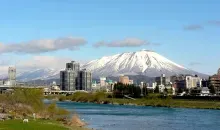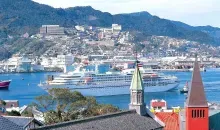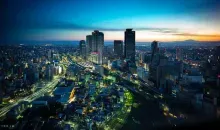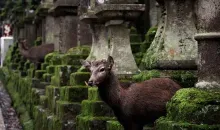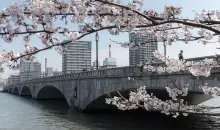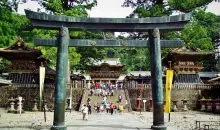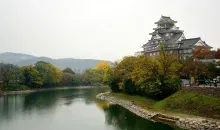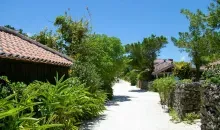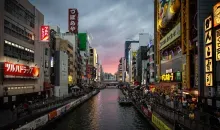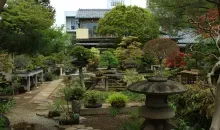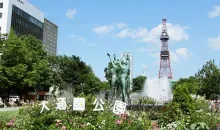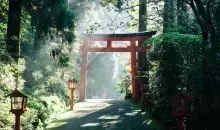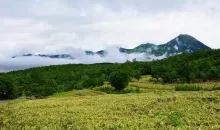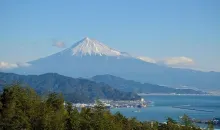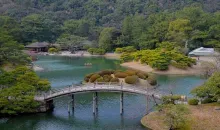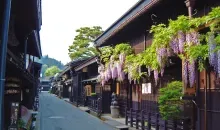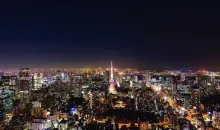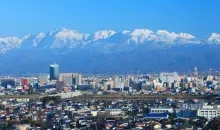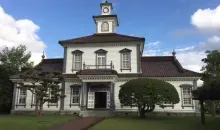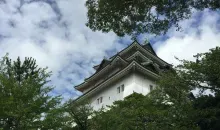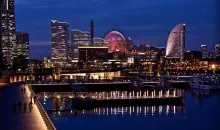Tokushima 徳島
Local Time 14:55
Symbol : sunny_cloudy
Temp : 18.7°C
Date : Today
Symbol : cloudy
Temp : 13.9°C
Date : Tomorrow
Symbol : sunny_cloudy
Temp : 14.4°C
Date : Sunday
Symbol : sunny
Temp : 14.1°C
Date : Monday
Local Time 14:55
Symbol : sunny_cloudy
Temp : 18.7°C
Date : Today
Symbol : cloudy
Temp : 13.9°C
Date : Tomorrow
Symbol : sunny_cloudy
Temp : 14.4°C
Date : Sunday
Symbol : sunny
Temp : 14.1°C
Date : Monday
The birthplace of Awa Odori
A former merchant hub open on the Pacific Ocean, the green Tokushima has two symbols: the Awa-odori dance and Mount Bizan.
Tokushima welcomes its largest number of visitors in mid-August during the Obon and the Awa-odori dance festival. For visitors who don't wish to wait for the summer, the Awa Odori Kaikan offers an insight into the history of this popular local dance and a rich display of costumes and instruments used for street performances. Daily performances of Awa odori are held on stage or performed by a robot. Behind the building, a cable car leads to the summit of Mount Bizan for those who don't want to climb by foot, for a spring stroll under its 1,500 blossoming cherry trees.
On the other side of the Shinmachi-gawa river, at the top of the hill overlooking the station, the ruins of Tokushima castle (1586) offer panoramic views over the city. The Japanese garden that surrounds it also contains a museum dedicated to the medieval history of the city.
Tokushima, capital of Indigo
Indigo dyeing and drawing are some of the typical activities of Tokushima, which ensured its commercial success in the past. For approxiamtely 500-3000 yen (depending on the piece and the pattern selected), artists and the curious can try their hand at it at the Indigo House, a former merchant house, which today introduces its visitors to traditional techniques used to decorate handkerchiefs, clothing, fans and curtains.
In terms of traditional activities, Tenguhisa Museum, the former workshop of a famous doll designer, has been restored and invites visitors to discover the art of making bunraku puppets, or ningyo joruri. There are daily performances at the Awa Jurobe Yashiki residence, a former samurai dwelling, now converted into a theater and museum.
Stage of Pilgrimage
Also very popular with pilgrims, Tokushima is home to five of the 88 temples of the Shikoku pilgrimage: Dainichi-ji, Joraku-ji, Kokubun-ji, Kannon-ji and Ido-ji. The famous religious trail begins at Ryozen-ji temple in the city of Naruto, north of Tokushima, also famous for its natural whirlpools in its strait.
Interested by Tokushima
Discover other cities to explore





